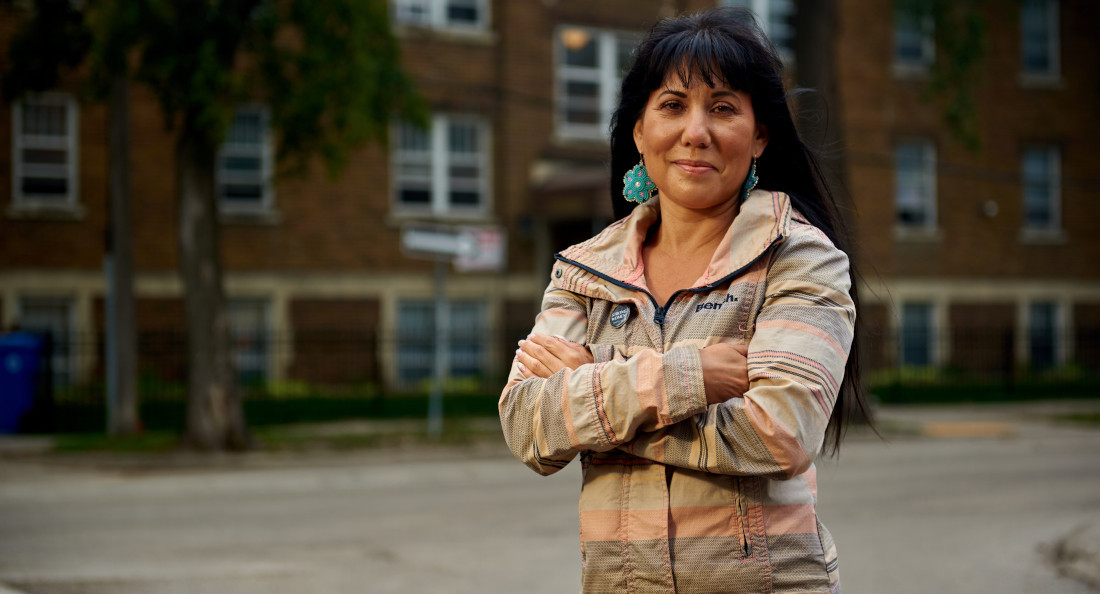Affordable housing and the federal election
Parties promise to build units, fight homelessness, restrict foreign owners
With less than a week left in the federal election campaign, affordable housing is at the forefront of policy discussions, and all parties have released their plans to address it. House prices have been rapidly increasing in most areas of Canada, and, according to a recent poll, affordable housing is one of the most important issues for voters.
Leah Gazan is the MP and NDP candidate for Winnipeg Centre, where, she says, the housing crisis is fully felt.
“When I speak with constituents, I hear about how rents are skyrocketing, and wages are staying the same,” Gazan says. According to the 2016 Canadian census, her riding has the sixth-lowest median household income in Canada.
“The housing crisis was magnified furthe by the pandemic, where the loss of employment resulted in many people experiencing being unsheltered for the first time,” Gazan says.
“No one should have to choose between paying rent and putting food on the table.”
While house prices in Winnipeg Centre are much lower than the Canadian average, Gazan says other issues are at play.
“Systemic underfunding has resulted in Winnipeg Centre having one of the highest portions of individuals in core housing need in the country,” she says.
The NDP housing platform includes a wide range of policies, such as “waiving the federal portion of the GST/HST on the construction of new affordable rental units” and implementing a 20 per cent foreign home buyers’ tax. Furthermore, they have committed to 500,000 new affordable housing units over the next 10 years.
The Conservative, Liberal, Libertarian, People’s Party and Green campaigns in Winnipeg Centre have not responded to The Uniter’s request for comment.
The Liberal platform on housing includes a promise to build, preserve or revitalize 1.4 million homes by 2026, as well as the creation of a tax-free First Home Savings’ Account. A re-elected
Liberal government would, according to their campaign platform, appoint a Federal Housing Advocate with the mandate of eliminating chronic homelessness. Though there is limited data available, an analysis by Statistics Canada shows that homelessness has likely increased over the last few years.
Similarly, the Conservatives promise to build 1 million houses within the next three years and ban “foreign investors not living in or moving to Canada from buying homes here for a two-year period.” They hope to fight homelessness by dealing with the underlying problems of addiction and mental-health challenges (according to the Canadian Observatory on Homelessness, Canada’s largest national research centre on the topic, the leading causes of homelessness are structural factors like income inequality and discrimination, poverty and lack of access to affordable housing, not addiction or mental illness).
A Green government would declare “housing affordability and homelessness a national emergency,” “establish a national moratorium on evictions” and build at least 300,000 units of affordable housing over the next decade.
As Dr. Aaron Moore, associate professor of political science at the University of Winnipeg, notes, there are not radical differences between the parties’ platforms.
“A lot of it is money for more to be built, so housing would be below market cost, which isn’t necessarily affordable for everybody,” he says.
Moore notes that the parties have focused on homeowners rather than renters, since “people who own homes tend to vote more.”
“Focus on rental doesn’t have as wide of an appeal,” he says, adding that the focus on driving down house prices is attractive to Millennials and Gen Zers looking to enter the housing market.
Published in Volume 76, Number 2 of The Uniter (September 16, 2021)







